Tag Archives: brain structure
08 Jan E/I Electric Potential Curve
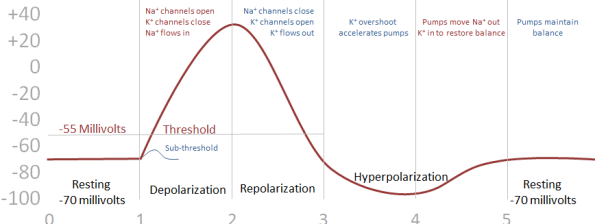
Challenge I’ve noticed two phenomena in computing that have often been compared to brain activity even though they don’t significantly resemble the behavior of electrical potential changes between neurons: Flip-Flop (the changing of a “register” from 0 to 1 Node Firing (The activation of a node in an artificial neural network) In this section of Understanding Context, I’ve been trying to […]
06 Jan Excitation and Inhibition

Most, if not all, neural information-processing functions involve the flow of action potential. Impulses in the nervous system are changes in the action potential or electrical charge of membranes. It is possible that, in addition to the membranes, the potential within the cytoplasm of the cell changes as a result of electrical flow in neurons. […]
03 Jan Synapses and Neurotransmitters

Synapse Structure Electrical impulses are transmitted between neurons either electrically or chemically, with chemical synapses being the most numerous by far. The synapse is where electrical transduction between neurons occurs, facilitating perception, thought and action. The gap between a synapse and its target is called the synaptic cleft (tagged in the center right of the illustration and […]
02 Jan Synapse Formation
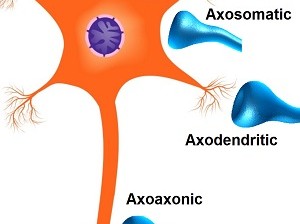
Many neurons have only a few synapses. Others, like giant pyramidal and Purkinje cells, may have tens or even hundreds of thousands of synapses. At the conclusion of the complex growth process, called synaptogenesis, in which growth cones at the tips of spines, axons, and dendrites propel or draw the fiber through the crowded gray and white matter […]
01 Jan Axon and Dendrite Growth
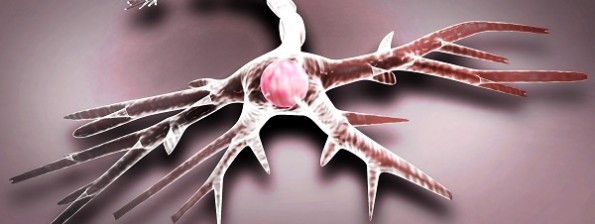
Link Formation in a Bio-Network It was once believed that the link structure of the nervous system was formed randomly during embryogenesis and remained static after maturation – sometime between early development and adolescence (except for regeneration after injury). Due to improved imaging resolutions and preparation techniques, we now know that axon termini, dendrites, and spines […]
31 Dec Signal Transduction in Neurons
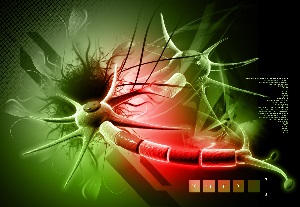
Wires in the Brain Electrical impulses jump from neuron to neuron in the brain through their branching nerve fibers. This movement of electrical potentials is called signal transduction, and significantly resembles the process of electrical flow in printed circuit boards and semiconductor chips. Nerve fibers (axons and dendrites) are filled with a fluid called axoplasm. […]
19 Mar Neural Networks – Section 3 Intro
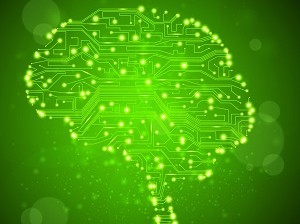
It’s all in your head My posts on Brains and Neurons show us there is a sense of structure and order in the brain. By looking at the brain’s areas, we see how each plays a special role in processing the information necessary to support human cognition and other activities. We’ve looked at neurons and learned that each type has its own components, […]
16 Mar Neurons – Section 2 Intro
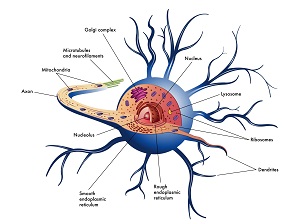
Neurons: Processing Elements or Storage Cells? In the Brains section of this blog, we examine the brain, its areas, and the types of neurons that populate the different layers of some of the brain’s areas. My posts in this segment will turn up the magnification and look a little deeper. What can be seen inside the cells? What is it that […]
10 Mar Biological Brains – Section 1 Intro
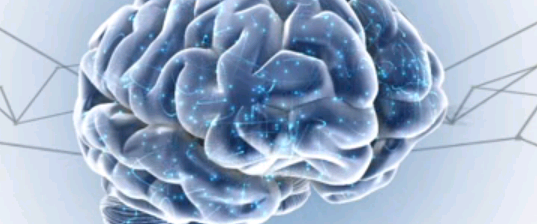
In this segment of the Understanding Context Blog, I will take a high level look at the brain: Its areas, Cell types, And functions. I’ll also explore where the brain stores and processes different types of information, including emotions. Studying the human brain is an important part of this analysis, because biological brains clearly outperform man-made information […]





